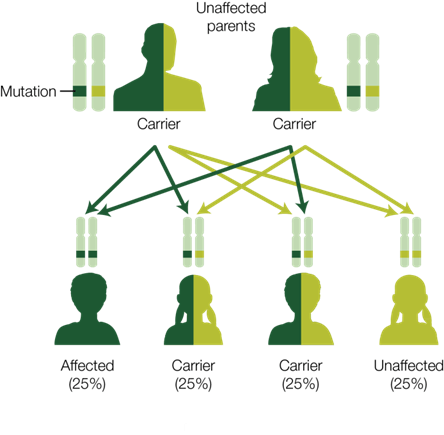Are you recently married or getting married soon? If so, you may want to consider learning more about your genetic makeup.Anyone can be a carrier of a genetic disorder. Testing for genetic carrier status is best accomplished before conception because more options are available – and less anxiety to deal with – if there is no pregnancy involved while awaiting results.

Genetic testing can identify couples at risk for passing on genetic conditions to offspring.While we all carry genetic changes that may cause disease if present in the right “dose,” it is still uncommon for both members of a couple to carry changes within the same gene. The chances that a couple will carry genetic changes that put them at risk of having a child with an inherited disease depends on their ethnicity and the frequency of disease-producing genetic changes within that population.In other words, how frequent is the disease? Who gets the disease? For some diseases, such as cystic fibrosis, spinal muscular atrophy or Fragile X (an inherited form of intellectual disability) the frequency of disease is high enough to consider carrier testing.A Need for a Pan-Ethnic Carrier ScreenMany of us know (or think we know) our ethnicity. As the population in the United States becomes more diverse, testing based on ethnicity becomes more challenging. Providing a genetic carrier screen that considers diseases among a wide range of ethnicities (pan-ethnic) is important.Quest Diagnostics is a leading provider of genetic testing and has always strived to provide testing that is clinically appropriate. Quest Diagnostics recently launched QHerit™, a pan-ethnic expanded carrier screen, which tests for 22 inherited conditions that are clinically well-recognized, occur early in life, affect quality of life, and have a carrier frequency of at least 1% in the general population. These criteria were decided based on consensus from several professional organizations, including the American College of Obstetricians and Gynecologists, the American College of Medical Genetics and Genomics, the National Society of Genetic Counselors, the Perinatal Quality Foundation, and the Society for Maternal Fetal Medicine.Because knowledge is powerful, prospective parents can use the information provided by the test to make reproductive decisions that align with their family goals and personal beliefs. Testing can be ordered through one’s health care provider and results can be discussed with a genetic counselor.To learn more about QHerit, visit
QHerit.com/Patient. For more information about how prenatal testing can help you be more informed, visit
QuestDiagnostics.com/Prenatal.
Your Privacy Choices





